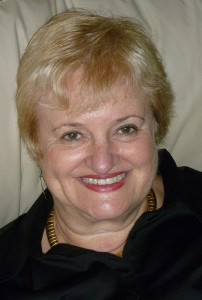As per Dr. Straussner, “if one is interested in learning and being challenged, it’s [the substance abuse area] a wonderful field. The knowledge of addictions treatment will come in handy no matter where one works.”
Dr. Straussner is a professor of social work at NYU’s Silver School of Social Work. Aside from being a lecturer, researcher and consultant, Dr. Straussner is also an active member of NASW, has a private and supervisory practice and is an author of over 15 books.
This past week, I had the pleasure and privilege of being able to interview Dr. S. Lala Straussner about her areas of expertise in substance abuse and addictions.
Without further ado, Dr. Straussner, what made you decide to pursue an MSW in general (and then to focus on addictions and occupational social work)?
Obtaining my MSW and my specializing in addictions and occupational social work were all “accidental,” so I’m a big proponent of going “with the flow” since one never knows what will happen in life.
I got my BA in Psychology and was planning to obtain my PhD in psych since I was interested in family therapy and research related to family dynamics. I started part time (I was newly married and working full time as an office administrator) in a doctoral program at Columbia’s Teachers College, but shortly after I started, the program changed its focus to community psychology (this was in the 1970s when many schools and programs were in the midst of adapting to the changing social issues) and I realized that that’s not what I wanted.
As I was trying to figure out what to do, a friend suggested that I look into social work, which I thought was strange since all I knew about social work was public welfare and that’s not what I wanted. My friend had a friend who was a professor at the Fordham School of Social Work and he agreed to talk to me about my interests and after a very long conversation with him, he recommended that I apply to the school there (actually, he physically walked me into the admissions office) and a few weeks later I was admitted to the Fordham School of Social Work and have never regretted this accidental decision.
I maintained my interest in family dynamics but I also realized that I needed a more comprehensive understanding of individual dynamics, so after graduation I decided to attend a psychoanalytic training institute while working in an in-patient psychiatric hospital.
I also attended a variety of family training workshops at the hospital, which was closely connected with people who became the leaders of Ackerman Family Institute (and after graduating from my analytical training institute, I attended a group training center, and then went for my doctorate in social work, and then started to teach – so you can see I never really left school).
My family training paid off when I started looking for a new job and saw an ad for a social worker at a newly opened alcoholism rehab center (Smithers Rehab at Roosevelt Hospital). While I had no knowledge or much interest about alcoholism, I did know something about family dynamics and they hired me to work with families of patients who were admitted to the rehab, which was based on the Hazelden model.
They also sent me for training in alcoholism at Rutgers Summer School of Alcohol Studies and at Hazelden, and the more I learned, the more fascinated I became in this topic – which moved from alcoholism to other drugs, and now addictions in general (gambling, eating disorders, etc).
One of my job responsibilities was dealing with referrals of people with alcohol problems from businesses and in this way I was introduced to a new field then called occupational alcoholism, which later evolved into Employee Assistance Programs (EAPs). Thus I became one of the early social workers in this area (which also became the topic of my doctoral dissertation and one of my first books).
So when I was hired to teach at NYU, I brought a wide array of skills and interests and developed a curriculum for then a new substance abuse course and later a post-master’s substance abuse program, which has been very successful. I also developed a summer educational program on EAPs, which was not that successful, so we no longer offer courses in that area although I have had a number of doctoral students who have, and continue to, do research in that area.
You were the Chair of the Practice area at NYU’s Silver School of Social Work and you direct the school’s Post-Master Certificate Program in the Clinical Approaches to Addictions. What are the parts that you enjoy most (and least) about these positions?
I am no longer chair of the Practice Area, but continue to direct the Post Master’s Addictions program. I enjoy administration, but find that it takes away from some other areas, such as writing and research, or even teaching new courses, so I’m glad to have less administrative responsibilities at the moment.
Chairing the practice area for the past couple of years allowed me to learn more about all aspects of the school’s administration as well as meeting and mentoring the many faculty teaching in the Practice area. During the time I was chair, we also prepared and underwent a very successful accreditation of the school, which involved a tremendous amount of work. So now it’s time to move on.
At the moment, I’m busy being on the school’s Executive Committee and co-chairing the International Committee, which is an exciting new endeavor for the school. I’m actually going to Israel over the winter break to try to develop some linkages between our school and universities there so that we can have student and faculty exchanges and new learning opportunities.
I understand that you served as the second Vice President of the NYC Chapter of NASW. Was this a role that you enjoyed?
My term as second VP at NYC NASW also ended after 3 years, but I have been an active member of NASW, both locally and nationally, since my student days. I found that the NYC Chapter committees provide a wonderful network for new professionals and one of my jobs as VP was to serve as a link between the Chapter Board and the different committees.
Many of the friends I made when I was a member of the Alcoholism (and later Addictions) Committee of the chapter are still my friends and the professional network of relationships that I have developed has been invaluable throughout my career. I have also been able to serve as a mentor to many social workers interested in addictions, and strongly encourage students and recent graduates to make use of opportunities available through being an active member of NASW.
What advice would you offer graduating MSW students or practicing social workers interested in moving into the substance abuse social work arena?
As I indicated above, one way of connecting with both mentors and peers is through professional networking such as via NASW. The both fortunate and unfortunate thing about the field of substance abuse or addiction is that there will never be a lack of problems and therefore of job opportunities.
The salaries are not always great and some people burn out after a while, but if one is interested in learning and being challenged, it’s a wonderful field. The knowledge of addictions treatment will come in handy no matter where one works.
It’s always interesting to see so many social workers who had no interest in this topic, come back to learn in the Post-Master’s program, even if they are not interested in becoming a specialist in this area, but just find this knowledge helpful whether they work in mental health, child welfare or in private practice.
What does occupational social work cover and what guidance would you provide social workers interested in pursuing social work in this area?
While there some jobs in occupational social work, and some of them pay very well, this is a very limited field at this time. Most EAPs today offer very limited assessment and referral services, much of it over the phone.
Some social workers have been able to move beyond or outside the social work role in industry by working in human resources or in training. The skills of social workers can be used in many ways and would be interesting to do a study to see how many MSW work in business and under what titles. If someone would be interested in such a study, I would be happy to talk with them.
Would you recommend that graduating MSW social workers who are not going on for doctorates continue their training at a psychoanalytic institute?
I’m a strong believer in obtaining more education before social workers do intensive clinical work (whether in agency or private practice). I don’t think 2 years of formal MSW education is enough of a background to do treatment. Many good training institutes also provide clients, which is a good way of beginning a private practice in the future.
Almost all institutes have open houses and it’s a good idea to attend a couple and to speak to current students and recent graduates. Going to a training institute is usually a long term process and can be expensive, so it should be taken as seriously as deciding what MSW program one goes into.
Finally, in terms of your private practice, what is it that you do to help cope with the fact that you hear so many painful life stories?
I strongly recommend the use of supervision or having someone to talk about some of the issues inherent in treating people with painful life stories (and everyone has some pain).
While I stopped having formal supervision years ago, I continued with regular peer supervision for many years, and now still have friends I talk with regarding clients whenever I feel the need.
Of course, these are friends who are therapists, so they understand what I’m talking about, and not just anyone who is around. Which comes back to what I mentioned earlier – the importance of having a professional network of peers/friends.
Thanks so much, Dr. Straussner, for being so kind as to share with us some of your valuable insights and guidance!
As always, please feel free to ask any questions or make any comments.
Photo Credit: Patrick Hoesly
Oil Brush Rainbow
Bookshelf





Thanks for providing this helpful information about the substance abuse field!
A few questions come to mind for Dr Straussner:
How prevalent a problem does substance abuse tend to be among the general population?
Does it tend to be more of a problem for certain populations?
Also, is this a problem that has been increasing over time or has our awareness and treatment of it simply improved over time?
Thanks!
Hi Dorlee, great interview and interesting dialog. Many years ago I went through a very intensive post graduate program in alcohol and drug counseling in New York. I learned a tremendous amount of information that has helped me in my current work, although I did not choose to stay directly in that field. Another topic that was touched upon, that I’d love to hear more about in depth – is therapy via social media. Fascinating. Thanks for another interesting post! ~Terry Del Percio, Career Transition Consultant
Hi Terry,
That’s so interesting that you went through an intensive training program on alcohol and drug abuse prior to moving into the career coaching field…
Thanks so much for your kind feedback and for sharing your interest in finding out more about therapy via social media.
My plan/hope is to be able to share information about that very topic in my next interview post 🙂
Best,
Dorlee
Hi,
This is in response to the questions raised by Anonymous above:
Q: How prevalent a problem does substance abuse tend to be among the general population?
Substance abuse and dependence are some of the most common problems in our society today -according to U.S. government data more than 22
million or 9% of the U.S. population meet the diagnostic criteria for alcohol or other substance dependence or abuse. And don’t forget that many have family members, especially children, who are severely effected by this. So we’re talking about a tremendous problem in this society (as well as in other countries).
Q. Also, is this a problem that has been increasing over time or has our
awareness and treatment of it simply improved over time?
Alcohol has been a problem since the beginning of human development, and there are stories about it in most ancient cultures (for example see the
story of Noah in the Bible). The widespread use of some drugs is more recent – and an identified problem among the younger population since
the 1960’s, following the Vietnam war and the youth rebellion (see “Hair”). But cocaine was used in the mid-1800s (that’s how we got Coca
Cola), and heroin after the Civil War. So there is nothing really new.
Q. Does it tend to be more of a problem for certain populations?
It is found in every population and age group, although different groups may have a preference for different substance. Some of the preference is based on age (Four Loco is preferred by young
people) or geographic location (ie. people on the West Coast or in the middle of the country may prefer methamphetamines, where as those in NY
may prefer crack cocaine), income, ethnicity, or other factors, and of course, everyone likes alcohol.
Sorry that don’t have time to answer more questions, but there is extensive literature on line (see SAMHSA)and numerous courses (including
NYU’s Post Master’s Program) for those interested.
*Waves hello to Lala*
It’s always wonderful to hear from a colleague–I’m not at all surprised that we agree about the importance of in depth post-MSW training, the need for good supervision, and the importance of knowledge of substance abuse regardless of your field of practice. When we had an alcohol/other drug concentration in our MSW program it was gratifying to find that our graduates were recruited heavily by non-addiction agency employers.
It’s great to hear that you’re working to build the international connections for NYU–given your extensive international experience you are the perfect person to do that!